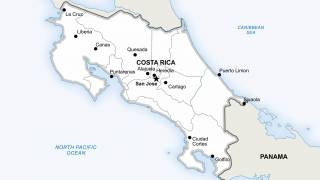Lebanon’s Travel Advisory Updated With New Risk Indicators

The U.S. Department of State updated its Level 3 Travel Advisory for the Lebanese Republic regarding new Risk Indicators.
On October 21, 2019, the U.S. State Department’s ‘Reconsider Travel’ Advisory says U.S. citizens should reconsider or avoid travel to certain areas in Lebanon because of the threats of violence.
This revised Travel Advisory indicates access to Lebanon’s Rafiq Hariri International Airport may be cut off if the security situation deteriorates.
And, U.S. citizens living and working in Lebanon should be aware of the risks of remaining in the country and should carefully consider those risks.
Lebanon’s Level 4 ‘Do Not Travel’ Advisory includes these areas:
- the border with Syria
- the border with Israel
- refugee settlements
Furthermore, the Lebanese government cannot guarantee the protection of U.S. citizens against sudden outbreaks of violence. Family, neighborhood, or sectarian disputes can escalate quickly and can lead to violence with no warning.
The UK’s Foreign Travel Advice, last updated on October 20, 2019, said ‘protests started on the evening of October 17th in response to new tax measures proposed by the Government.’
In an effort to mitigate this reaction, Reuters reported Lebanon’s government approved an emergency package of economic reforms on October 21st in a bid to defuse related protests.
Lebanese protesters have also blocked major roads to gain publicity for their causes, including the primary road to the U.S. Embassy and the primary road between downtown Beirut and Rafiq Hariri International Airport.
Access to the airport is important since Lebanon’s annual tourism increased by 2.97 percent to 221,695 visitors by February 2018.
According to the Lebanon Ministry of Tourism, the number of Arab tourists constituted about 34 percent of total tourist arrivals, and the number of European tourists accounted for a similar 34 percent in 2018.
And, American tourists came in 3rd place with a share of about 13 percent in the total number of Lebanon tourist arrivals.
Lebanon is the smallest recognized sovereign state on the mainland Asian continent, with a population of 6 million residents. The earliest evidence of civilization in Lebanon dates back more than seven thousand years, predating recorded history.
Separately, the Canadian government’s Travel Advisory, which was last updated on October 21st, says to avoid all travel to the southern suburbs of Beirut, including the neighborhoods of Tariq el Jdideh and Bir Hasan, due to an unpredictable security situation.
If you decide to travel to Lebanon, the U.S. State Department suggests:
- Avoid demonstrations and crowds.
- Stay alert in locations frequented by Westerners.
- Enroll in the Smart Traveler Enrollment Program (STEP) to receive security messages and make it easier to locate you in an emergency.
- U.S. citizens who travel abroad should always have a contingency plan for emergency situations, such as this Traveler’s Checklist.
- U.S. Embassy Beirut, Lebanon; (961) (4) 542600 or (961) (4) 543600; BeirutACS@State.Gov
From a health perspective, the U.S. Centers for Disease Control and Prevention (CDC) updated its travel guidance when visiting Lebanon on October 3, 2019.
The CDC says to ensure you are up-to-date on several Routine Vaccines before visiting Lebanon. This includes a measles vaccination since Lebanon was listed in the CDC’s Global Measles Outbreak Notice published on June 10, 2019.
Additionally, the CDC suggests these travel vaccinations: Hepatitis A and Typhoid.
Travel news is published by Vax-Before-Travel.
Our Trust Standards: Medical Advisory Committee























